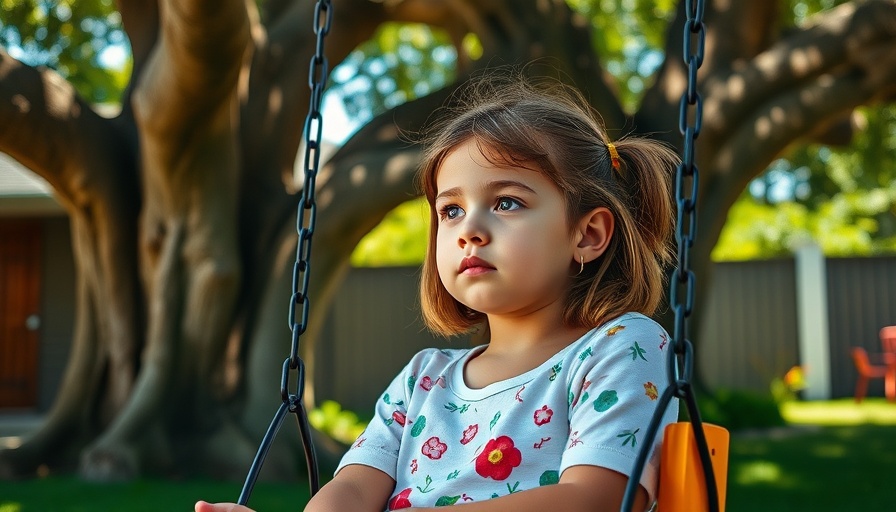
Understanding the Impact of Wildfires on Children's Mental Health
The recent wildfires in California have drawn attention not just for their devastation, but for the ripple effects they leave in their wake, particularly concerning children’s mental health. Displaced from their homes and stripped of their normal routines, children like 10-year-old Emory Stumme found themselves struggling to cope. As the psychological toll mounts, initiatives like Project:Camp step in to help ease these burdens.
Project:Camp: A Beacon of Hope for Displaced Families
Founded by Mikey Latner in 2018 after observing the challenges faced by children affected by Hurricane Harvey, Project:Camp aims to restore some semblance of normalcy amidst chaos. Offering free day camps to kids displaced by natural disasters, the program provides an environment where children can reconnect with their peers and rediscover joy in play. As noted in coverage of the camp, the counselors are trained to cater to the unique needs of children struggling with stress and anxiety related to trauma.
The Importance of Routine for Mental Stability
Research has shown that adverse childhood experiences, such as natural disasters, can lead to long-term physical and emotional consequences. In the wake of the Eaton and Palisades fires, many families reported noticeable changes in their children's behavior, including increased anxiety and sadness. By creating a structured and safe space, Project:Camp allows these young ones to regain their footing, fostering essential social connections while simultaneously helping them restore their daily routines.
The Role of Community in Healing
Community support has never been more crucial, and camp programs are one way for families to find solace together. When children participate in activities tailored to help them process their experiences, it also diminishes the stigma of discussing mental health issues, encouraging open dialogue between parents and children.
Future Trends Towards Mental Health Awareness in Youth
As awareness surrounding children’s mental health continues to grow, organizations are more likely to incorporate psychological support services into community programs following disasters. Parents can leverage this trend by seeking out local initiatives focused on youth mental health, ensuring their kids benefit not only from the structure but also from research-backed interventions that foster resilience.
Practical Steps for Families Facing Trauma
For many families, recognizing the signs of trauma in children is the first step towards healing. Parents should look for changes in behavior such as withdrawal, regression in development, or an increase in irritability. Engaging with programs like Project:Camp can provide critical support in these challenging times. Parents should consider leveraging available resources or forming support groups with other displaced families to foster communal healing.
Empowering Conversations About Mental Health
Emory's experience, as recounted by her mother Becca, highlights how vital it is to address mental health openly. By encouraging children to express their feelings and validating their emotions, parents can foster a supportive environment that leads to healing. Initiatives like Project:Camp teach crucial skills that parents can incorporate into their own parenting practices.
In conclusion, as communities rebuild after the devastation of wildfires, programs designed to support children through these formative experiences provide hope and healing. Everyone has a role in amplifying the importance of mental health in youth. Whether you are a parent, educator, or business professional, understanding this impact can help pave the way for proactive approaches to mental well-being in the future.
Investing in our children’s mental health today will lead to a brighter, emotionally resilient tomorrow.
 Add Row
Add Row  Add
Add 




 Add Row
Add Row  Add
Add 

Write A Comment